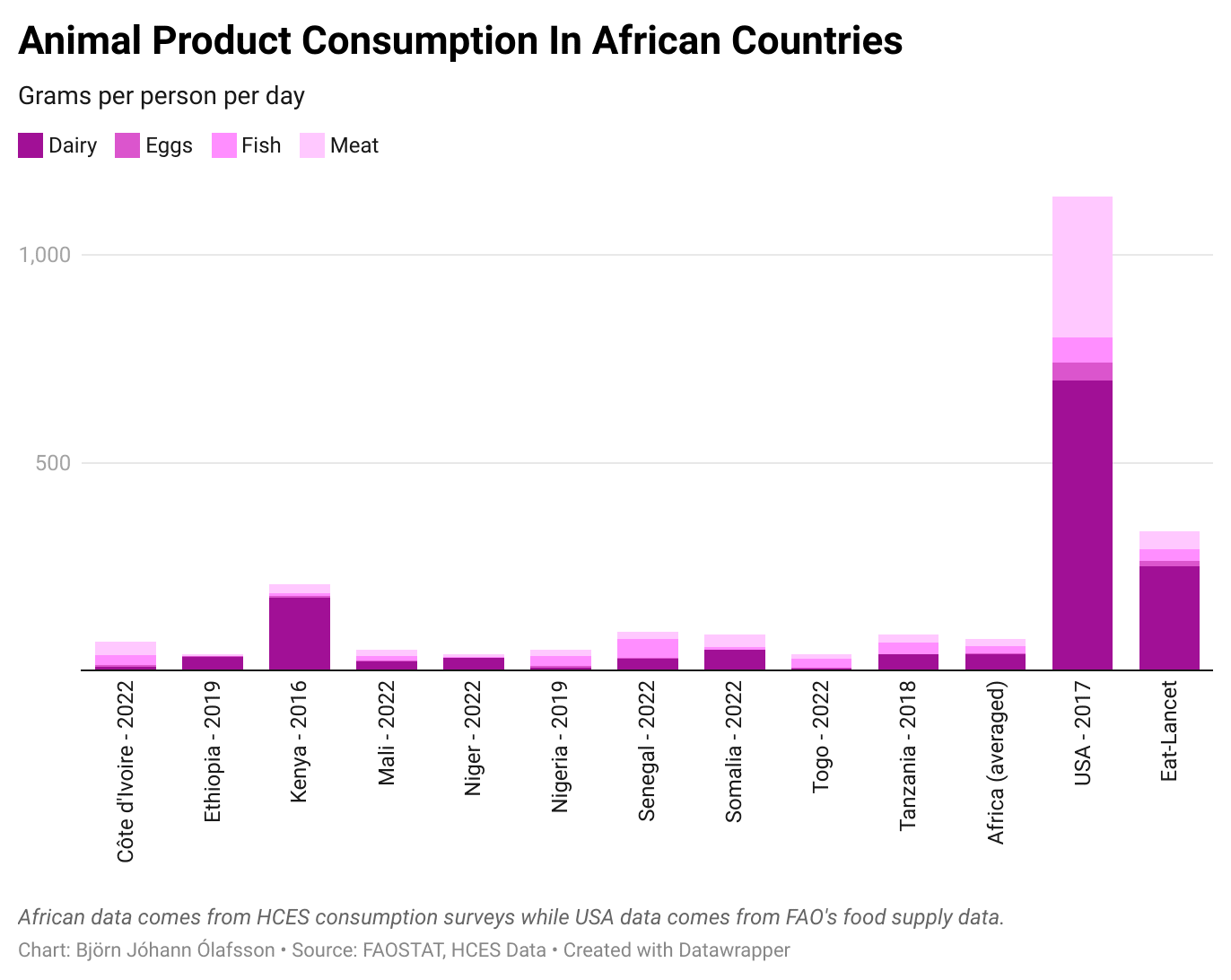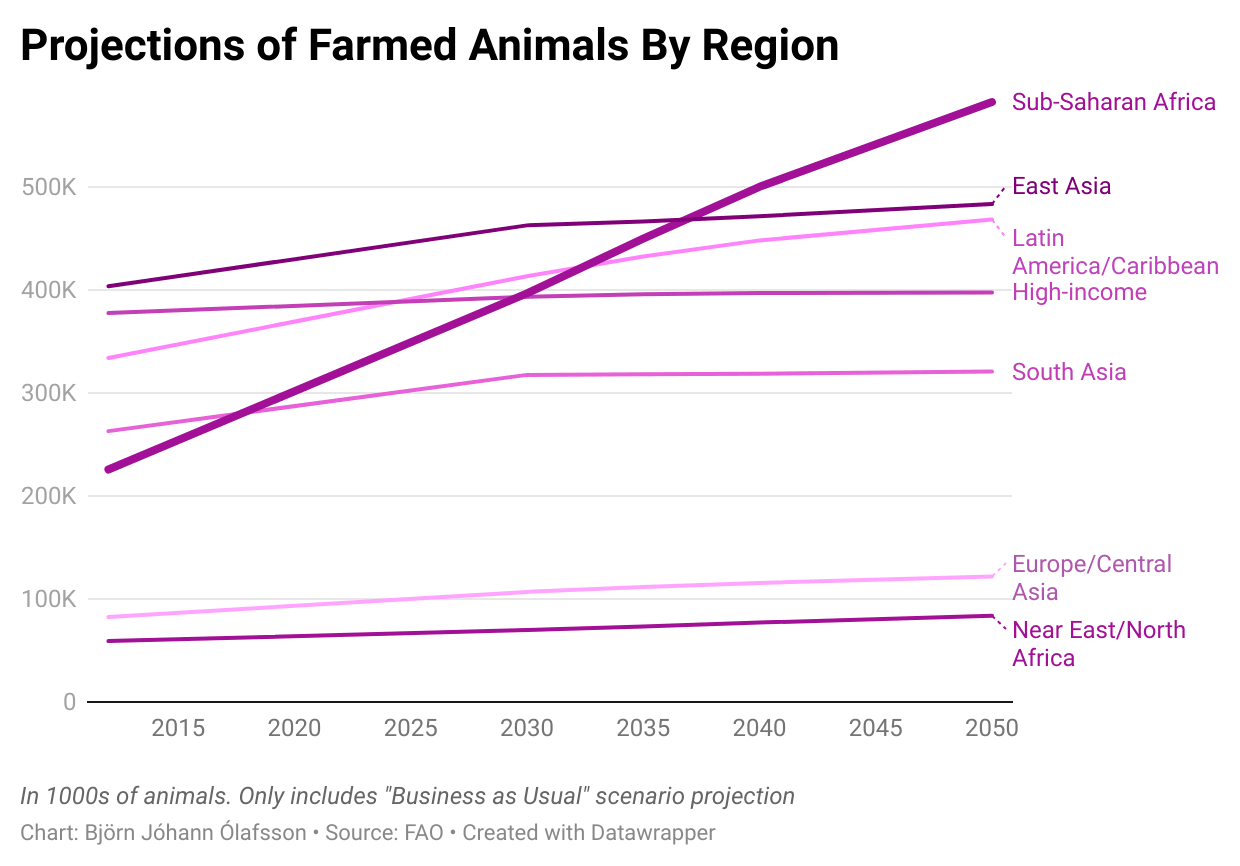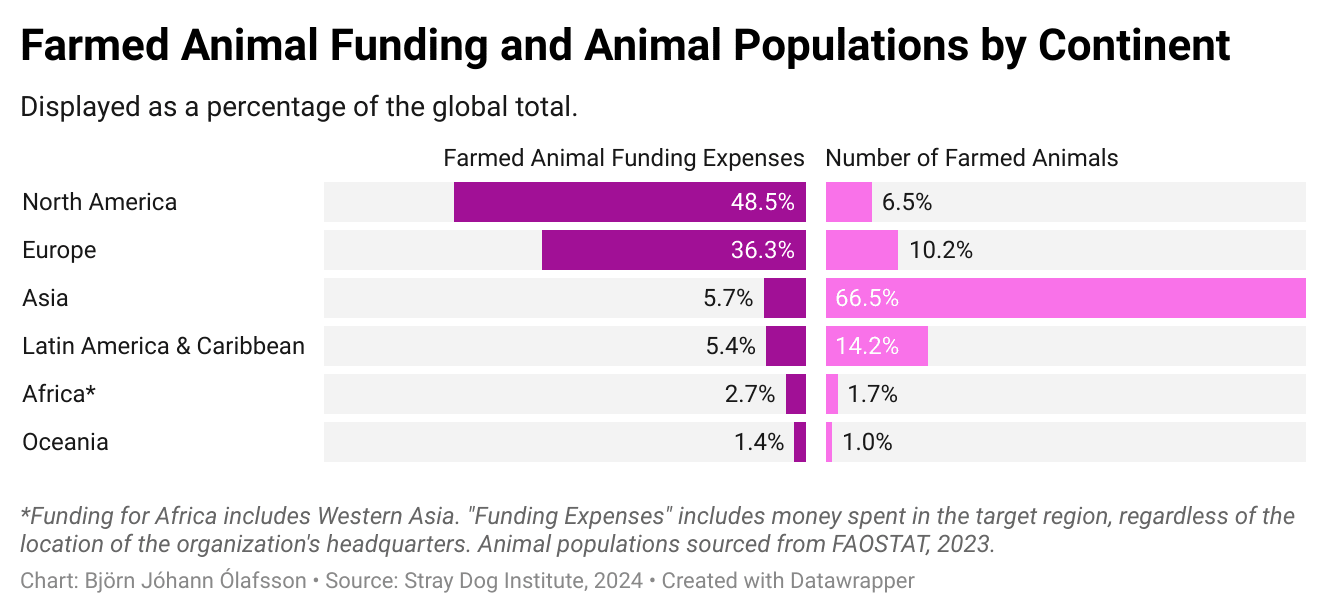The following is a lightly edited crosspost from my newsletter on meat reduction strategies. If you like this topic, I also strongly recommend that you review this debate post from @Angel Lau: We should prioritize slowing the spread of industrial animal agriculture in future high-production regions
Africa has the lowest rate of meat consumption of any continent in the world except Antarctica, despite the best efforts of orcas. However, that’s soon set to change due to the rapid rise in meat consumption and production in Africa, especially south of the Sahara. Factory farming is taking root, fast.
Africans Don’t Eat Much Meat… For Now
Most Africans don’t eat a lot of meat. To show just how little, I pulled meat consumption data from African countries, the United States, and the EAT-Lancet Planetary Health Diet (a recommended diet that’s good for the planet). I’ll let the data speak for itself:

Rich white countries are eating nearly twenty times more meat than African nations. But here’s the thing: in most places, as people start earning more money, they spend more of that money on meat and animal products (in fact, there’s a strong correlation between national GDP and meat consumption worldwide). Many Africans are rising out of poverty (which, to be absolutely clear, is a good thing!), which is expected to increase the amount of meat people buy in the future.
There’s another problem: the factory farming industry. International farming groups are starting to set up shop on the continent, which is going to fuel meat production and consumption even more. Factory farming is not an aspect of African cultures — in fact, many of them find the idea abhorrent. Still, JBS is pumping billions of dollars into creating new factory farms, especially in large economies like Nigeria.
Given these factors, it’s no surprise that Sub-Saharan Africa is the region of the world expected to grow animal production the most over the next few decades.

To me, this strongly indicates that we need to be thinking about how to grow the African economy without creating massive industrial factory farms that abuse human rights, animal welfare, and the environment.
The African Movement is Under-Supported
Preventing the growth of factory farming won’t be easy. Farmed animal protection operations typically operate on a shoestring budget, but the numbers become even starker when we break down the money by region. The vast majority of philanthropic spending for farmed animals goes towards North America (especially the U.S.) and Europe.

Very little money is going towards where the animals actually are (Asia) or where these animal herds are expected to grow (Africa). A lack of funds creates a lack of research. There are a few reports on strategies specific to African countries (like Bryant Research’s Africa-wide intervention report, Animal Ask’s reports on Egypt, Ghana, and Zimbabwe, or Animal Advocacy Africa’s research), but more is needed.
In my opinion, we need to build the movement against factory farming in Africa before Big Meat becomes too entrenched and powerful to stop. What do you think?
Subscribe to my newsletter to ge these posts in your inbox
Hi Björn, I agree that intensive farming should be mitigated. I think every dollar in the movement should be spent on advancing cultivated meat as that's the most likely and effective solution.